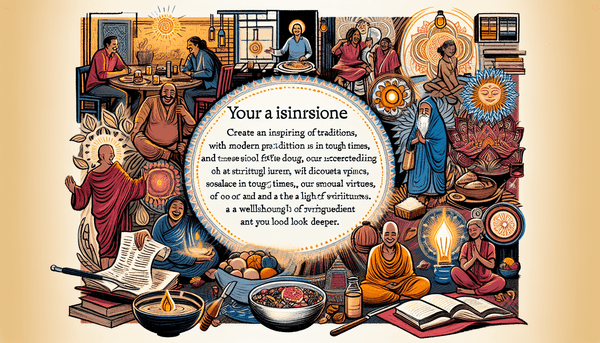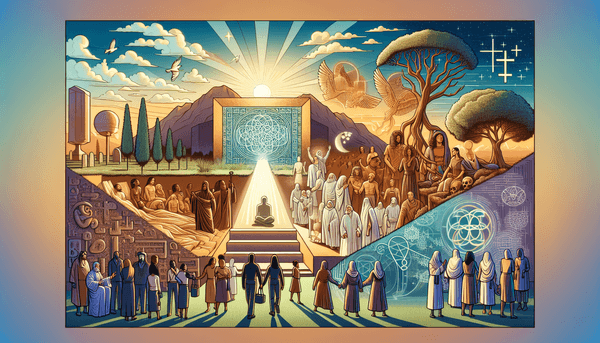The Role of Humor in Friendship and Faith
Friendship and laughter often go hand in hand, and the Bible recognizes the importance of joy in our lives. Sharing a joke or a light-hearted moment with a friend can be a powerful way to strengthen bonds and lift each other's spirits. Proverbs 17:22 tells us that 'A cheerful heart is good medicine, but a crushed spirit dries up the bones.' This proverb highlights the healing power of humor. The Bible also acknowledges that there is 'a time to weep and a time to laugh' (Ecclesiastes 3:4), reminding us that while life has its challenges, there is always room for laughter. By bringing humor into our relationships, we follow the biblical encouragement to 'Rejoice in the Lord always' (Philippians 4:4) and to draw from 'the joy of the Lord' which is our strength (Nehemiah 8:10).
Dietary Laws and Modern Faith Practices
The Bible's dietary laws, particularly the Old Testament prohibition against eating pork (Leviticus 11:7-8), were significant in defining the practices of the Israelites. However, in the New Testament, Jesus revolutionized the understanding of purity, teaching that 'nothing that enters a person from the outside can defile them... it is what comes out of a person that defiles them' (Mark 7:18-19). Peter's vision in Acts 10:15 further emphasized that God has made all foods clean. In the present day, Romans 14:17 reminds us that 'the kingdom of God is not a matter of eating and drinking, but of righteousness, peace and joy in the Holy Spirit.' As believers, we are encouraged to partake in God's creation with thanksgiving, as 'everything God created is good, and nothing is to be rejected if it is received with thanksgiving' (1 Timothy 4:4-5).
The Seven Gifts of the Holy Spirit
The Holy Spirit bestows upon believers gifts that are meant to be nurtured and used for the edification of the church and the betterment of the world. Isaiah 11:2 lists these gifts, including wisdom, understanding, counsel, might, knowledge, and fear of the Lord. The New Testament also speaks of the diversity of gifts and their divine purpose, as seen in 1 Corinthians 12:4-6 and Romans 12:6-8, which encourage us to use our unique gifts in service to one another. The gifts of the Spirit are closely tied to the fruits of the Spirit, which include love, joy, peace, and more (Galatians 5:22-23), and are given to believers to help build up the body of Christ (Ephesians 4:11-12). These spiritual gifts should be actively sought and cultivated to fulfill God's work on Earth.
Conclusion
As we've explored the various aspects of biblical wisdom, from the levity of shared humor to the profound messages of hope and comfort, we see a tapestry of teachings that can guide us through life's journey. The Bible is not a static text but a living source of inspiration that speaks to every facet of human experience. By examining these topics, we can find solace in the scriptures and forge deeper connections with those around us. May the insights gleaned from these ancient words encourage readers to seek out the joy, comfort, and guidance that faith promises, and may they serve as a beacon of light in both times of trouble and times of celebration.
FAQ
Q: What does Isaiah 40:1 to verse 31 mean?
A: Isaiah 40:1-31 is a chapter in the Bible that contains a message of comfort and hope for the people of Israel. It speaks of God's sovereignty and assures that those who hope in Him will be renewed and strengthened.
Q: Is it a sin to eat pork?
A: In the Old Testament, the consumption of pork was prohibited. However, the New Testament teaches that no food should be considered impure and that what truly matters is the purity of the heart.
Q: Why are there so many religions?
A: The existence of multiple religions is a complex issue influenced by historical, cultural, and personal factors. The Bible teaches that there is one God, but humanity's search for truth and meaning has taken various forms across different cultures and times.
Q: What are the seven gifts of the Holy Spirit?
A: The seven gifts of the Holy Spirit, according to Isaiah 11:2, include wisdom, understanding, counsel, might, knowledge, and fear of the Lord, and these gifts are meant to be used for the common good.






